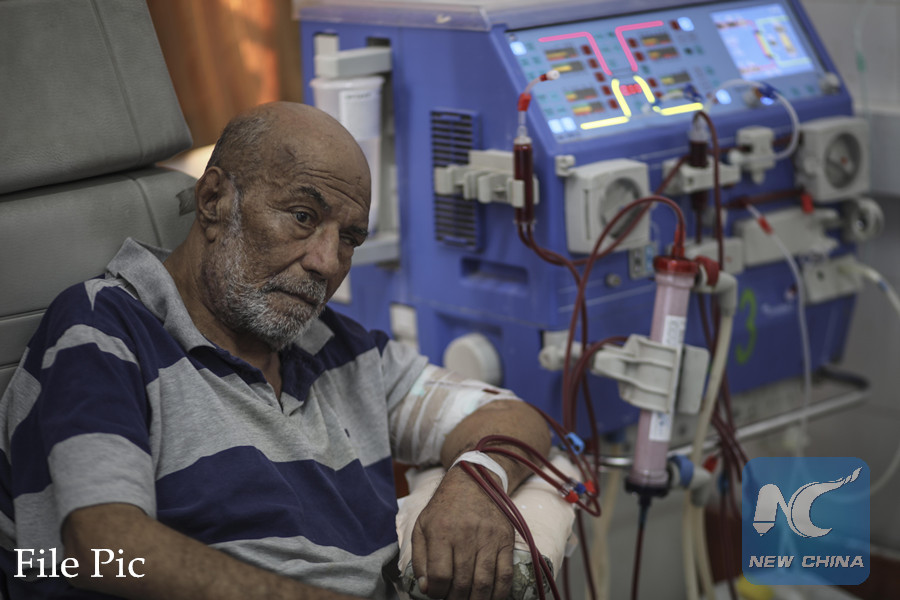
A Palestinian patient receives treatment at the department of kidney dialyses at a hospital, during the worsening crisis of power outages, in the Gaza City, on Aug. 14, 2017. (Xinhua File photo)
GAZA, Sept. 24 (Xinhua) -- The Gaza health ministry warned on Monday that the mounting severe shortage of medicines is risking the life of thousands of patients in the Gaza Strip, especially those who suffer from chronic diseases.
"Primary Health Care services and their programs and protocols are at risk as the deficit in essential drug lists becomes more acute," Maher Shamiya, director general of the ministry's Primary Care, told a news briefing in Gaza City.
According to him, around 100 out of 143 Primary Health Care medicines are unavailable. Besides, another 16 may run out in the next three months.
Shamiya warned that lack of medicine will deprive patients with chronic diseases, such as diabetes, high blood pressure and asthma, of continued treatment for the next three months.
It has become very difficult for patients to "obtain medicines from government health centers or the local market," Shamiya noted.
In addition, there is also a severe shortage of therapeutic milk for children.

A Palestinian patient receives treatment at the department of kidney dialyses at a hospital, during the worsening crisis of power outages, in the Gaza City, on Aug. 14, 2017. (Xinhua File photo)
The situation is "life-threatening" and "complications are expected if the crisis is not resolved," the health official concluded.
The Gaza Strip has been suffering from an Israeli blockade since 2007. One of the Israeli restrictions is that the patients in Gaza are not allowed to move freely for medical treatment.
Ashraf al-Qedra, the ministry spokesman, told Xinhua that the Israeli authorities prevent about 60 percent of Gazan patients from travelling abroad for medical treatment.
A total of "56 patients died in 2017 because they were banned by Israel from travelling abroad for medical treatment," al-Qedra said.
Such moves by Israel violated the international conventions, including the Fourth Geneva Convention and the International Humanitarian Law, he added.
Meanwhile, the medical work by the health facilities in the Gaza Strip are at risk of being interrupted by the shortage of fuel needed to operate generators used to cope with frequent power cuts.
The United Nations recently warned of the lack of funds allocated to purchase emergency fuel for hospitals, water stations and other vital installations in the Gaza Strip.
The Gaza Strip suffers from a deficit of more than two thirds of its electricity supply, leaving the residents there with only four hours of electricity every half day.

